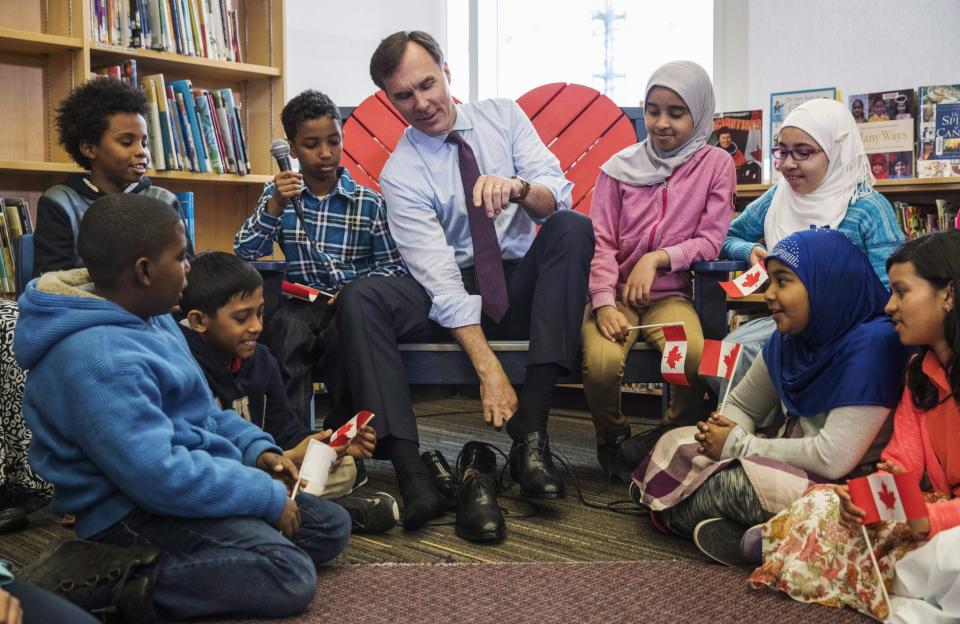5 things families should watch for in Wednesday's federal budget

A year ago, the Trudeau government unveiled a budget that rejigged personal tax rates, overhauled child and family tax benefits system, and promised big infrastructure spending. With the Harper era firmly in the rearview mirror, this year’s budget is not expected to be so dramatic.
“They seem to be setting the bar pretty low in the sense that there is not likely to be a lot of new announcements in this budget,” says David MacDonald, senior economist at the Canadian Centre for Policy Alternatives.
However, every budget offers changes from the last, and there are some items that will be of interest to Canadian families.
Middle-class benefits
If this seems a bit broad, it’s because the government hasn’t really tipped its hand as to what it plans to do, though last year’s Fall Economic Statement reiterated its stated commitment to making things easier for the middle class. The question is how, since overhauling personal tax rates for a second straight year is unlikely.
“We can assume there are definitely going to be measures that are going to reduce taxes for the middle class,” Armando Minicucci, Principal of tax services at Grant Thornton. “The question is, how do you reduce taxes for the middle class without also giving a similar tax benefit to everyone else?”
Minicucci says he expects Finance Minister Bill Morneau will instead tinker with tax credits and benefits, either by introducing new ones or perhaps different versions of credits that were cut last year, such as the arts and child fitness credits. Either way, the Liberals see middle-class families as their base, and will want to do something to keep them happy.
Childcare
Speaking of benefits, the Canada child benefit was a centrepiece of last year’s budget. This year, some expect the feds to extend the program over a longer term, though not necessarily change the value. However, tweaking the program could be an avenue to getting more money into the hands of the middle class, such as raising the $30,000 income threshold for reducing benefits, says Minicucci.
“I wouldn’t be surprised if we saw a more generous level of program for parents,” he says.
It’s also possible that the Liberals make an additional commitment and use some money to try and free up childcare spaces, which are still hard to come by in Toronto.
Parental leave
Way back in the 2015 election, the Liberals made a lot of noise about extending parental leave to 18 months from the current 12. There hasn’t been much progress on that, though the government did hold consultations late last year on how to revamp parental leave.
They haven’t said if that will lead to any changes in this year’s budget, but it would be a natural opportunity to signal progress on that front.
Tax credit changes
While the government may avoid big changes to tax rates and benefits, tax credits could continue to see some changes, following the removal of several credits in the last budget.
Minicucci, who notes that tax credits are a way to influence behaviour, thinks the age amount and the public transit tax credit could be on the way out, as many believe they serve little purpose.
“The speculation is that there hasn’t’ been any correlation between the public transit credit and the use of public transportation. So I would say there’s probably a good chance that that tax credit will be eliminated,” says Minicucci.
Airport sales
This won’t have an immediate impact, but the Liberals have been looking at the idea of selling off Canada’s big airports, which are currently run by not-for-profit authorities, the budget could start the ball rolling on that.
If that comes to pass, travellers will notice a difference, says MacDonald. “It will almost certainly cost you more at the airport,” he says.
Doing so could result in higher parking fees, airport improvement fees, and the rates airports charge the airlines, which would then be passed along to the consumer through higher ticket prices.


